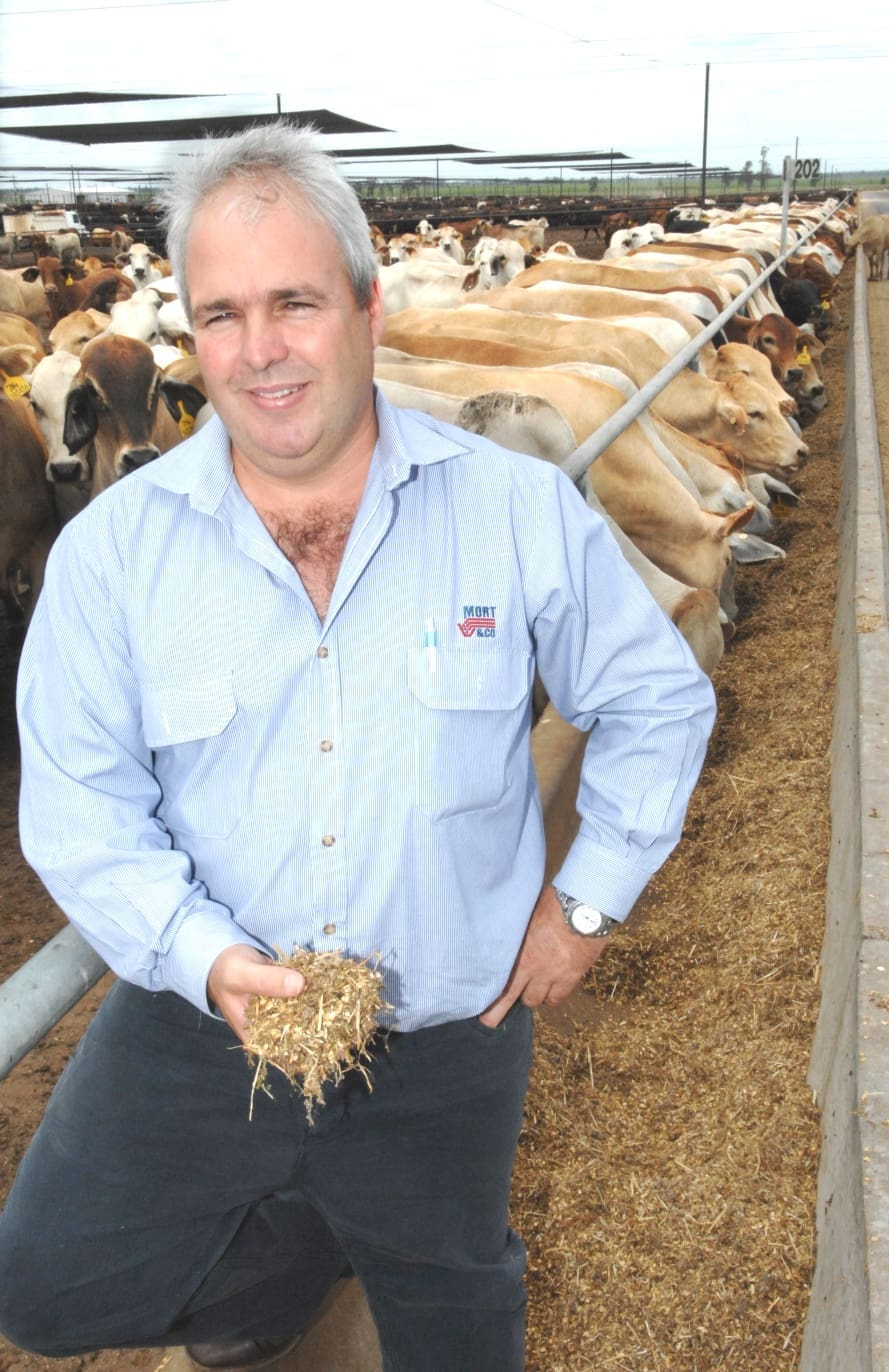STRONG international demand for Australian beef was not only providing positive returns for lotfeeders, but giving grainfed industry stakeholders the confidence to invest and grow their businesses, the Australian Lot Feeders Association’s annual general meeting will be told this afternoon.
Outgoing president Don Mackay said the big question was whether current cattle pricing and strong global demand would continue.
“I believe it will,” he said. “There will always be difficult periods, but the medium to longer-term signals for grainfed beef are good.”

Signs of industry confidence: Charlie Mort’s Grassdale feedlot near Dalby is expanding to 42,000 head
Lotfeeders and other stakeholders attending the industry’s BeefWorks conference in Toowoomba today and tomorrow will see first-hand evidence of the current expansion phase the industry is undergoing.
A visit to Mort & Co’s Grassdale feedlot near Dalby tomorrow afternoon will include an inspection of the yard’s recently completed first stage expansion, which will ultimately take capacity at the yard out to 48,000 head. The project was covered in detail in Beef Central’s Top 25 Lotfeeders report published earlier this year – click here to view.
The past three years had been a period of significant change for the Australian beef industry, Don Mackay will tell today’s AGM, involving both new and established international markets, reduced cattle supplies in recent times, and now rapidly increasing cattle prices.
“It has also seen livestock production generally and intensive production in particular, come under greater scrutiny than ever before. How our industry responds to these challenges and opportunities will ultimately determine the role we play in providing protein to the world,” he said.
The success of the Australian beef industry was heavily influenced by changes in the world economy, with around 65pc of Australian beef exported.
“Historically we have been very reliant on just a few markets, particularly the US and Japan. While these markets remain extremely influential, the growth in other economies is providing the much-needed market diversity necessary to shield us from market shocks when they inevitably occur,” Mr Mackay said.
The last three years has seen significant growth in several emerging markets with China, Southeast Asia, the Middle East and Europe being examples.
“This has come at a time when many large beef producing countries have seen their cattle herds fall substantially on the back of poor seasons and high demand, resulting in higher world beef prices and hence further liquidation pressure,” he said.
“The position in Australia is similar. As a result we now have a perfect market ‘storm’, with increasing demand all over the world and falling supply in almost every major beef producing and consuming country.”
“While it is unknown how this will impact upon the Australian feedlot sector, there is no doubt feedlots will play a major role to satisfy this growing demand.”
Environment and ethics
In highlighting other areas of ALFA activity over the past 12 months, Mr Mackay said the association had continued to implement the key recommendations from its review of animal welfare within the cattle feedlot sector.
Importantly, a series of amendments to the National Feedlot Accreditation Scheme were approved, and extension activities undertaken. Certified animal welfare officer training was developed and rolled-out, with 146 lotfeeders now accredited, and further training to take place in 2016.
ALFA remained active in finalising the animal welfare standards and guidelines for cattle, and lobbied NSW to mandate the standards in legislation (like all other states) to ensure all lotfeeders were meeting these minimum requirements.
“We also continued regular formal meetings with the RSPCA, Coles and Woolworths to explain our sector’s activities and understand potential trends that could impact on our industry,” Mr Mackay said.
“In 2014/15, we also met with Costco and Aldi supermarket groups. Such meetings will continue to be held on a regular basis into the future.”
The association also instigated meetings with processors as part of a broader strategy to achieve full supply chain management of heat stress. In addition, meetings were held with researchers to prevent duplication on R&D; and industry vets and nutritionists to augment extension and adoption of R&D/ NFAS updates.




HAVE YOUR SAY